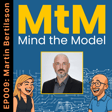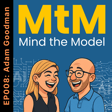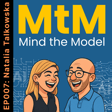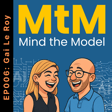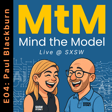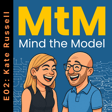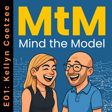
Mind the Model: Episode 005: SXSW Recap (Extra)
In this special episode, Nate and Em talk all things SXSW Sydney - no guests, just their POV on the event and what they learned about AI.
Special mentions:
Ethan Mollick blog post: An Opinionated Guide to Using AI Right Now: https://www.oneusefulthing.org/p/an-opinionated-guide-to-using-ai
Ethan Mollick’s Book is called: Co-Intelligence: Living and Working with AI
You can find him on X @ https://x.com/emollick
His substack is great: https://www.oneusefulthing.org/
Note: Open AI have since changed their corporate structure, converting its main business into a for-profit corporation, run by a non-profit. Yeah it seems to make little sense to us (or many other people out there).
https://www.theguardian.com/technology/2025/oct/28/openai-for-profit-restructuring
🎧 Enjoying the show?
If you liked this episode, follow, rate, and share Mind the Model with your fellow AI-curious friends — it really helps us grow!
💬 We’d love to hear from you!
Got thoughts, questions, or ideas for future episodes? Drop us a message at mindthemodelpod@gmail.com. Your suggestions help shape the conversations we have on the show.
